If you’re pregnant, breastfeeding, or know moms that are, chances are you’ve seen the following mom-shaming cheeseburger breastfeeding ad.
It’s the brainchild of Brazil’s Pediatric Society of Rio Grande (SPRS) that’s meant to encourage women to eat a healthy diet while breastfeeding.
Believe me, I’m all for optimizing preconception, prenatal, and postpartum health. After all, my book Real Food for Gestational Diabetes (and online course), focus almost exclusively on how a woman’s lifestyle can positively impact both her own and her child’s health. There’s loads of research supporting the importance of a mom’s diet during pregnancy and lactation.
And in some ways, this advertisement has done its job – it certainly got our attention and sparked more conversations about breastfeeding nutrition!
BUT, maybe it hasn’t done so in the best way.
It’s always been a bit taboo to discuss breastfeeding nutrition in terms of how diet impacts the quality of breastmilk because there are already so many barriers to breastfeeding. Adding the requirement of a so-called “perfect diet” to the list can push some women away from choosing to breastfeed.
For that reason I’ve always tip-toed around the topic, even while presenting at medical conferences, because we know that moms who eat a less-than-perfect diet still produce quality breastmilk.
No matter what, breastmilk offers health benefits to baby.
It just happens to be more nutritious when a mom eats a nutrient-dense diet.
- For example, choosing real food fats in lieu of margarine will prevent the transfer of harmful trans fats into breastmilk (and instead ensure the transfer all sorts of good fat-soluble vitamins) (AJCN, 2014).
- Choosing animal foods sourced from grass-fed and/or pasture-raised animals will provide more nutrients and fewer pesticide residues.
- Making sure your vitamin D levels are optimal will increase the vitamin D transferred into your breastmilk. (J Hum Lact, 2013)
[W]hen maternal vitamin D intake is sufficient, vitamin D transfer via breast milk is adequate to meet infant needs. “ (J Hum Lact, 2013)
However, the last thing we want to do is make a woman feel like her breastmilk won’t be good enough (she’s likely worried about that already!).
Unfortunately, that’s exactly where this ad falls short.
Instead of showing an image of a mother eating a well-balanced real food meal and sending a positive message, it focuses on the negative. It makes mothers feel guilty if they aren’t eating as healthfully as they’d like to.
The first thought that I had when I saw this was: “If you eat the wrong thing, you’ll hurt your child.”
I guarantee you, even the healthiest of eaters aren’t eating that way every single meal. I know I don’t.
It also perpetuates the idea that fatty, filling foods, like burgers are not healthy, when in fact (perhaps minus the refined wheat bun), it’s a great food for a breastfeeding mom to have, particularly if it’s made with grass-fed beef and includes some yummy grilled onions and fresh greens. It supplies the necessary iron, zinc, B vitamins, folate, choline, fat, and protein that a mother and baby needs – not to mention the calories needed to replace the deficit left from breastfeeding. That’s right, exclusively breastfeeding moms burn an additional 500 calories per day.
As my colleague and favorite perinatologist says,
It’s like having a gym on your chest” – Dr. Kjos
And after your all-day and night “workout,” you’ve gotta eat!
To drive this point home and highlight some of the ways you can focus on the positive and ensure you both care for yourself and provide your baby with “super milk,” check out this interview I did with Ciara from Baby Wear for Fitness.
Some of the questions I answer:
- Do you think it’s important to pay special attention to nutritional needs during the postpartum period? (3:53)
- Can pregnancy deplete the body of certain nutrients? (6:45)
- What types of foods do you recommended to make super milk? (10:30)
- What foods should moms avoid? (15:30)
- What do you recommend as far as caffeine? Should we avoid it completely or is a little bit OK? (18:30)
- What about sugar intake? (19:57)
- What other recommendations do you have for moms that want to start exercising again? (23:30)
psst – The freebie with prenatal snacks mentioned in the interview (that double as filling, nutrient-dense snacks for breastfeeding moms) is linked below this post!
If you need help coming up with what to eat while breastfeeding, here are some yummy real food recipes that everyone, especially breastfeeding moms, can use:
- Maple Pots de Creme
- Liver Pate
- Wild Alaskan Salmon Cakes
- Slow Cooker Pulled Pork
- Spinach Chips
- Indian-Spiced Stuffed Bell Peppers
- Cardamom Cashew Butter
Until next week,
Lily
PS – If you’re trying to eat well, but struggling with how to make cooking at home faster and easier than takeout, check out these 8 tips (‘cause easy always wins in my book!).

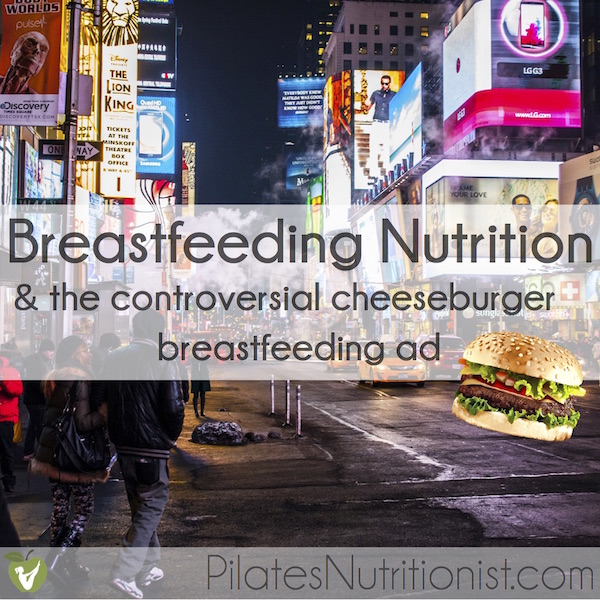
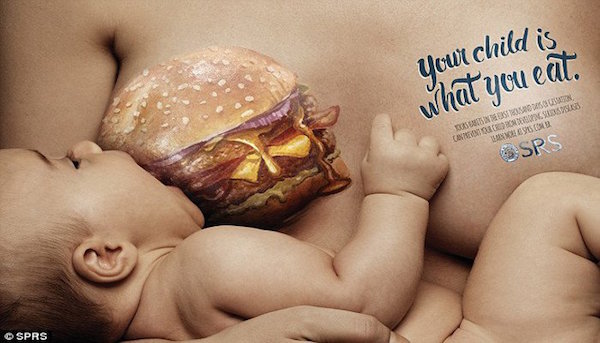

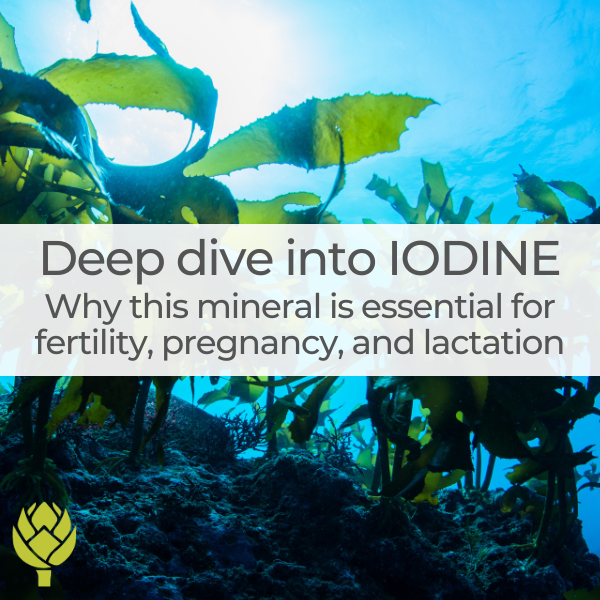
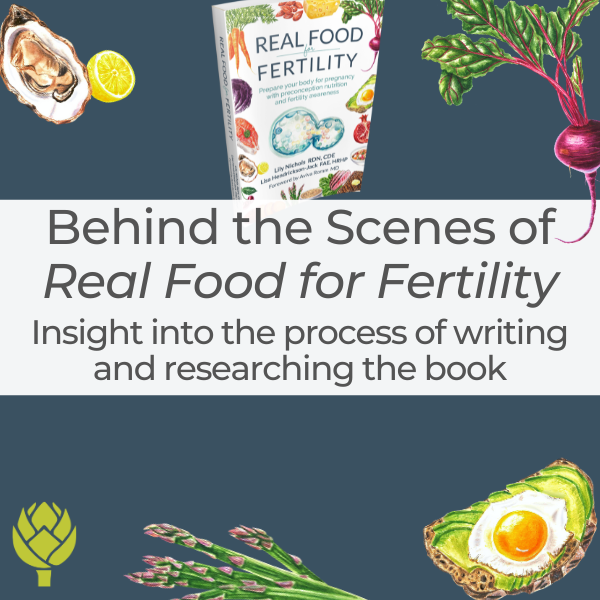
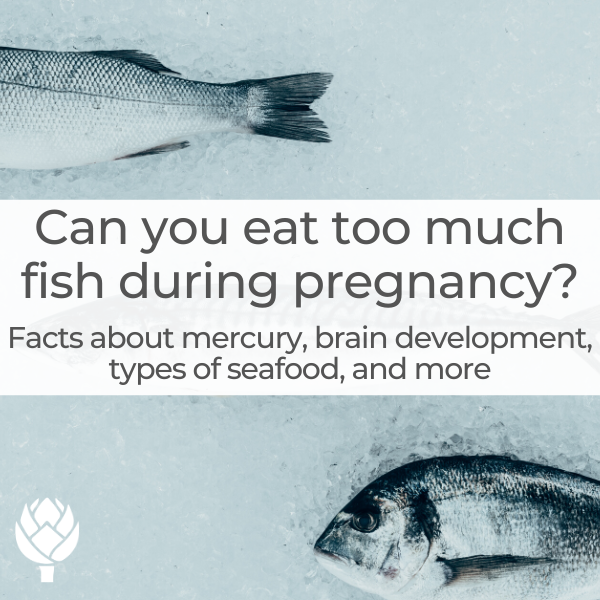
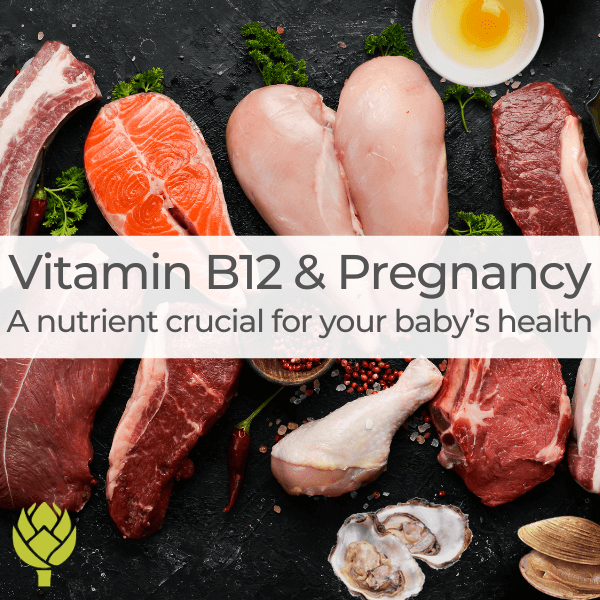



Great post! I totally agree that the ad you mentioned could be misleading in terms of saying that moms have to have a perfect diet in order to breastfeed. I’m curious about your take on how to ensure a breastfeeding mother obtains adequate vitamin D? I read the same article and though it states that it is possible for breast milk to provide adequate vitamin D if mom’s stores are adequate, it also notes that in order for moms to have adequate stores, many required up to 10x the current RDI of vitamin D in order for that to happen. Would love to know your thoughts!
Thanks Danielle. Yep, the current vitamin D recommendations are far too low to maintain normal blood levels of vitamin D (in everyone, but particularly pregnant and breastfeeding moms). This post explores more on vitamin D and how to ensure you get enough.
Do you have any research on high fat low carb diets while nursing. I am not full Keto, but since changing to this diet my son (5months) has been having bad gas and constipitation. I am wondering if it’s due to the diet change. I really want to stick to HFLC, I have done it for years pre pregnancy. Thank you!
Hi Melissa, There’s not a ton of research in this area, but I cover the available data on low carb diets during breastfeeding (both published research and anecdotal data) in the postpartum chapter of my book, Real Food for Pregnancy.
I just listened to your podcast with Gina from Fitnessista, and I was wondering what your thoughts are on taking a collagen supplement while breastfeeding?
I cover this topic and other supplements in Real Food for Pregnancy. See the last chapter titled “The Fourth Trimester.”
Hi Lily! I am wondering what you know or experience with postpartum sugar cravings/addiction? It is hard to find research on the topic but I know a lot of moms experience this intense sugar craving postpartum. If you have any resources for me that would be wonderful:)
Thanks so much!
Hi, I have a 6 month old and follow as much of your nutritional guidelines as possible while I was pregnant with him and now (as I am breastfeeding), however I just found out I am pregnant now and I know my nutritional needs are probably all out of whack! I was wondering if you had any helpful suggestions or point me in the direction of extra supplements I should be taking to now “eat for three”? Any advice or tips would be greatly helpful and help me ease anxiety as I am 7 weeks pregnant! Thanks!
Hi, I am still breastfeeding my almost – three year old. I’m wondering if you recommend taking a multi vitamin? I was taking the two brands you recommended while pregnant and for two years after. Would you recommend that I continue taking one of those multi vitamins? Thank you